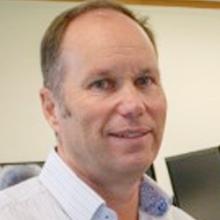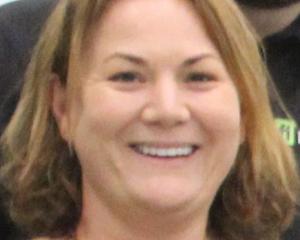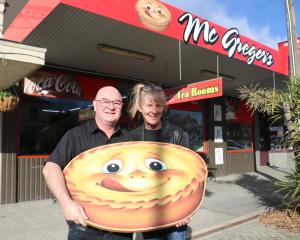
The managing director of Invermay-based animal parasite diagnostics company Techion Group has been working on a survival plan for the business, which he has dubbed the crisis response action plan, or Crap.
It was not the first time he had had to enact such a plan to deal with the impact of disease; the outbreak of foot and mouth in the United Kingdom in 2001 just about "took out the business completely".
Mr Mirams, who built the first FECPAK system in the bedroom of a house in Roslyn in 1992, sold the business to PGG Wrightson in 2006. He bought it again in 2010 and Techion Group was formed, relocating to Invermay in 2017.
Techion Group had gone from a microscope system into online digital, revolutionising parasite diagnostics and selling its technology around the world.
While foot and mouth was not Covid-19, the "lights off, sudden stop" nearly two decades ago was the same, Mr Mirams said.
"I know what it feels like, it was unprecedented at the time."
Back then the business was flying high, a darling of the technology sector.
When news of the outbreak broke, Mr Mirams was attending an agricultural expo in Paris where he met then-French president Jacques Chirac. Within an hour, the site was shut down.
A domino effect followed — that was when he came up with the Crap plan and executed it.
Businesses needed to retrench and collate as much information as possible and consider the fundamentals, he said.
Communication was "absolutely critical": with staff, shareholders, the board, key suppliers and contacts and landlords.
Communicating with family members was also important, and sometimes meant some courageous conversations.
Mr Mirams encouraged business owners to talk to their banks — "don’t hide" — and to come up with their own Crap plans.
He had also learned to switch on and off — to step away do what made him happy.
Business owners should not be afraid to share, but they should be selective about who they shared with, he said.
He had a group around him that had helped him get through the challenges in the past and was still there for him.
Those people were pragmatic and provided rigour and support.
Most businesses Mr Mirams had talked to had varied levels of impact from Covid-19.
The proactive ones were shedding between 15% and 18% of staff; it sounded "brutal", but firms had to act promptly, he said.
Prior to Covid-19, Techion Group had about 25 staff at its Invermay site and six based in Wales. Its board had now made the hard decision to cut about 15% of jobs —"a terrible thing to have to do" — even though it had the Government’s wage subsidy.
There was a possibility those staff might be re-employed at some stage "if things turn around".
Mr Mirams said the experiences he had had "to get us to here" had been "life learnings to allow us to survive and thrive".












